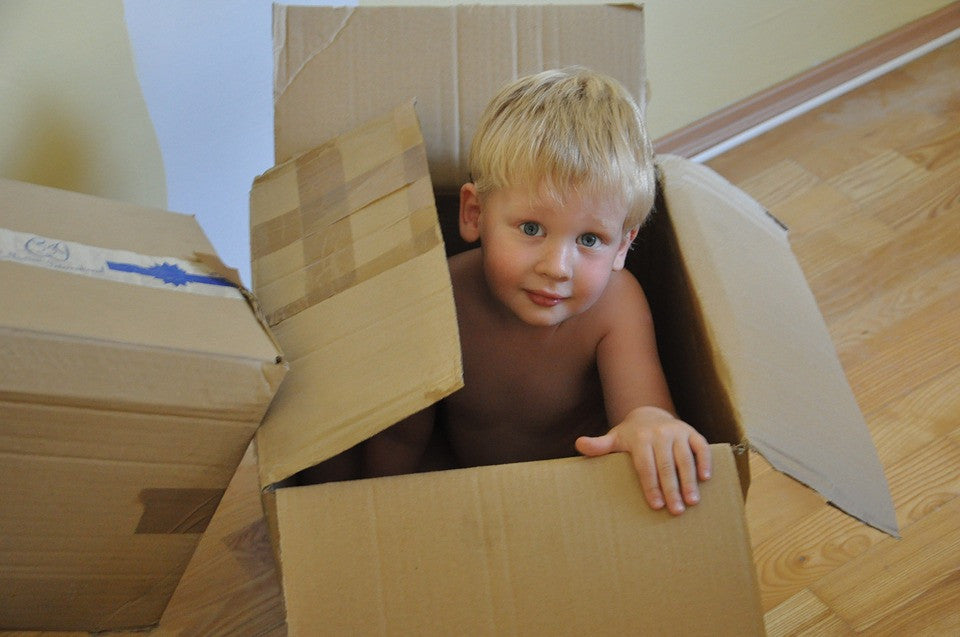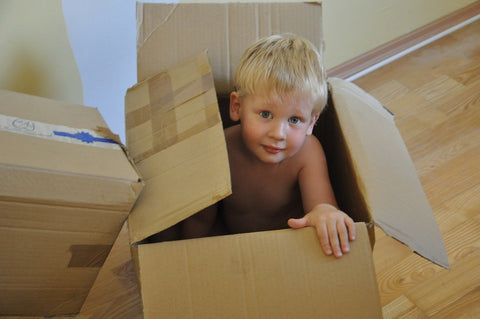
Telling Your Children about Moving
Erin Burt

The moment has come, the decision made. Whether it is ten blocks over or ten states, relocating is additionally complicated when children are involved. Writing a succinct article on all the intricacies of moving would be inadequate. After all, millions of people move every year and every situation is different. Some moves are welcomed and sought while others are forced and necessary. Kids of different ages and developmental needs may require different things along the way. This post will speak to telling your children about moving while a follow-up will touch on how to make the actual move smoother.
Let them know first—and from you. Sometimes you may know months in advance, which might not be most ideal for telling your toddler who barely understands the concept of later today, much less later this year. If you hold back from your children though, be mindful of when you talk about the move and ask family and friends to be careful too. Children pick up on whispers and subtleties more than we realize. Letting the kids hear the news from you is important as you are their source for trust, consistency, and safety. Additionally, as some family relationships can be complex (that’s a whole different post), you want your kids to learn about the move in the way you planned to tell them.
Time it right… for your situation. Telling too soon could unnecessarily raise anxiety, endless questions, and the likelihood that young ones will forget or not believe it will happen “one day.” At the same time, older children might pick up on something going on, secret conversations you have with your partner or parents in the other room, and so on. The age of your children, distance of the move, and reasons for the move may play into your situation.
Use simple, concrete language. Know as many details as possible—the date, the location, the reasons—before you broach the subject. When decisions are clear, there is less wiggle room for debate. Disagreement may still exist, but that is different than the fine art of negotiating with a child about details. Don’t say something is up for discussion if you already know the decision is made. Again, your children trust you and need the security you provide. Saying one thing while meaning another may cause more uncertainty in this time of transition.
Include them—and their feelings— as much as possible. Speak about the basics at first, and allow room for questions. Let them make choices on things they can (what movies to watch while road-tripping, what color to paint their new room, etc.). You have the coming days and weeks to speak all together or one-on-one and get into the intricacies with them. Each child may have different developmental or individual needs when it comes to those discussions, as well as varying levels of participation throughout. Each child will also have differing nuances in their feelings about moving, and those feelings need space for processing. Be that safe space for your child to cope with the unknown and anticipate having such a conversation more than once, especially with toddlers and preschoolers, who like to ask the same question many times to confirm that the answer is still the same.
Tell the truth to the best of your knowledge. If you know you have no intention of returning to the city you are leaving, telling your child they will get to come back and visit may only crush them down the road when the grief of moving really sets in. Don’t sugar coat, but feel free to point out the upside. If other things are going to change—you will go back to work after years of being at home—let them know that some things will be different. Saying everything will be the same simply is not true and will not allow them time to adjust their expectations. Allow space for the gray areas to exist for a while but support them with the stability of your love.
Share your heart with them… somewhat. Besides the logistics, share with them why this move is meaningful to you, and what you will look forward to (what they can look forward to as well). It may offer more financial security, get you closer to family, move you away from stressors, or simply be living up to a commitment you’ve made (especially relevant for military families). If you are unhappy about the move, sharing some of your uncertainty is okay but an overall message of certainty and optimism may best inspire your children to get on board. Work your own feelings out with a trusted friend or professional.
While every family situation is unique, by adequately preparing emotionally in advance of the move you will likely avoid additional challenges (literally) down the road.
Lynette is a mom of three children from one year to age five. She has cloth diapered all three since birth and enjoys all things eco-friendly and mindful living.







